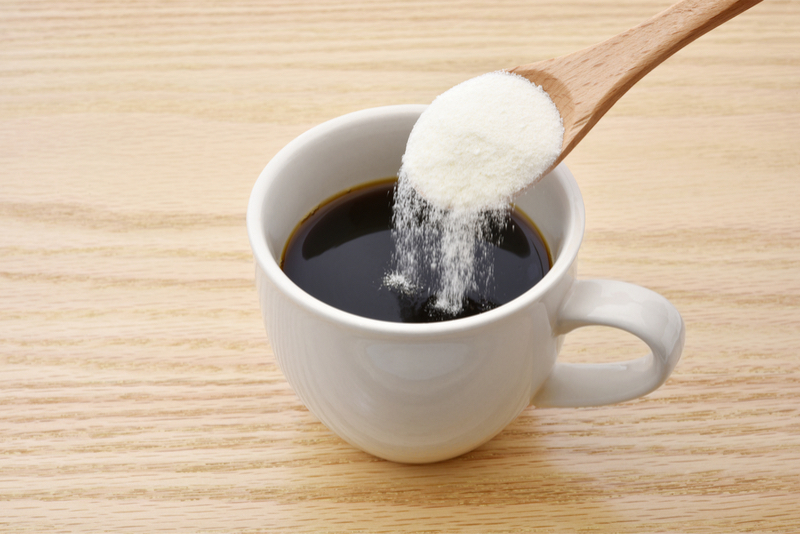Did you know menopause can begin in your 40s, 50s, or 60s? While the average age is 51-52 years, many women begin experiencing symptoms like emotional changes, skin changes, hot flashes, fatigue, difficulty sleeping, and more much earlier. In addition, many women find that it becomes difficult to maintain a healthy weight and overall good health during menopause.
If this describes you or a loved one, there are many healthy steps you can take to achieve your weight and health goals during menopause. Here are our top 7 tips.
What is Menopause?
Menopause is defined as the point in time 12 months after a woman’s last period. In the months before this 12-month-transition and during it, women experience many changes. This time period is often referred to as peri-menopause, and it’s the body’s transition to no longer being able to bear children.
The menopausal transition can last 7-14 years, from pre-menopause to peri-menopause to menopause. Pre-menopause often begins around age 45, with an average age of 51-52 years for menopause. But, it can also be triggered by a hysterectomy or surgical removal of the ovaries, since these organs have a big influence on hormone production.
What’s more, women often go through a lot of emotional and social changes at this time as well. Their children may be leaving home or becoming adults, work responsibilities can change, or they may become caring for their own elderly parents.
It’s important to consider the whole-body effects of menopause, including mental, physical, social, and emotional health.
What Causes Negative Symptoms During Menopause?
The challenging symptoms associated with menopause are mostly due to hormone changes. These changes include a decreased production of estrogen and progesterone (made in the ovaries), and an increased production of follicle-stimulating hormone (FSH) and luteinizing hormone (LH) increase.
The decrease in estrogen is thought to cause most of the symptoms of menopause. Estrogen, or more specifically estradiol (E2), is secreted from the follicles of a woman’s ovaries. Since eggs are no longer being released from the ovaries, follicles no longer develop, and E2 declines (1).
This decline can be erratic and devastating to some. In fact, many women first experience a significant increase in E2 in their mid-40s and then an abrupt drop. Others have more of steady decline. The overall E2 decline can cause:
- Irregular periods
- Vaginal dryness
- Hot flashes
- Chills
- Night sweats
- Sleep problems
- Mood changes
- Weight gain and slowed metabolism
- Thinning hair and dry skin
- Loss of breast fullness
- Changes in labido
In addition, many women experience insulin resistance (which can make fat loss difficult), increases in cortisol, and decreases in bone density during and after menopause.
7 Ways to Enjoy Your Best Health During Menopause
While this may all sound quite dire, it doesn’t have to be. You can take steps to enjoy your best health during menopause. In fact, some women thrive and feel wonderful as they go through this life phase transition. It’s not without challenges, but they can be met with healthy strategies.
Here are our 7 ways to enjoy your best health during menopause.
1. Start with Spiritual Health During Menopause
It all begins with your Spirit.
As you enter, go through, or even pass menopause, keep your focus on God and His promises. Change can be tough, but our God does not change.
His love for you and steadfastness lasts from everlasting to everlasting. Even through menopause, if God is for you, who can be against you?
Don’t let negative thoughts, self-doubt, self-criticism, or stress take control. God can help you conquer all of this.
2. Aim for a Healthy Weight During Menopause
Next, hit one of the toughest parts of menopause head-on. Since menopause can be associated with rises in cortisol and insulin resistance, it can be a very challenging time to obtain or maintain a healthy weight. These changes even affect how and where fat is deposited in the body (2).
But, there is certainly a lot of hope for a healthy weight with the right eating lifestyle. To aim for a healthy weight during menopause, start by reducing carbohydrates. When you vastly reduce carbohydrates and enter ketosis, your body can improve insulin sensitivity, fat loss, and overall health during menopause.
In fact, a study in over 88,000 women reported that a low-carb diet was associated with a decreased risk of postmenopausal weight gain, while a higher-carb low-fat diet increased risk of weight gain among participants (3).
What’s more, intermittent fasting, fasting in general, healthy detox and cleanses can have a huge impact during menopause.
To get started with your own ketogenic and fasting journey, try:
Dr. Colbert’s Keto Zone Diet Book
3. Consider Healthy Hormone Levels During Menopause
Again, the majority of symptoms during menopause come down to hormonal changes, and the biggest change occurs with estrogen. But, it’s not just about the level of estrogen, but estrogen’s metabolism and balance in relation to other hormones during menopause.
Some women experience estrogen dominance (elevated estrogen relative to other hormones) and others experience loss of testosterone and progesterone.
There is a natural way to help balance your estrogen changes, no matter it’s level.
Diindolylmethane (DIM) is a natural compound, found in cruciferous vegetables, that alters the metabolism of estrogen in order to help the body balance hormones. DIM works specifically by converting “bad estrogens,” into good estrogen metabolites. Bad estrogens are those that cause most pre-menstrual and menopause symptoms including fat gain, cramping, acne, low energy, and more. They are also found in higher levels in those with breast cancer.
Good estrogens promote leaner bodies with more muscle, high-quality collagen in connective tissues, healthy bone density, and good cholesterol levels. DIM encourages estrogens to metabolize to the beneficial forms while deterring negative forms.
If you are interested in adding DIM to your supplement regimen, Hormone Zone is a balanced, natural supplement complex that contains DIM.
4. Guard Your Bones During Menopause
Due to changes in hormones, bone density also becomes a risk factor for women during menopause and after. Instead, of just hoping for better bone health, though, you can take steps to fortify your bones with bone-building foods and supplements.
Great food choices include protein foods and meats, eggs, nuts, green beans, fish (including small bones), plain yogurt, and more.
In addition, it’s important for menopausal women to get enough Vitamin K2, or menaquinone. This vitamin is found in animal foods and fermented foods. Unlike the more familiar vitamin K1, K2 is often deficient in adults. It’s often overlooked as an important nutrient, but it’s becoming clear that K2 has many specific, important functions in the body.
Vitamin K2 is extremely important for bone health, especially in post-menopausal women. Supplementing vitamin K2 and vitamin D together may reduce spinal fractures, hip fractures, and osteoporosis. Further, vitamin K2 supports good dental health from infancy into advanced age.
To get enough K2 every day, use Hormone Zone, a natural supplement that support women’s health.
5. Build Muscle During Menopause
At the start of the menopause transition, a woman’s rate of fat gain doubles and her lean muscle mass declines. This is a double whammy, and it’s again related to hormone changes!
It’s imperative for women to double-down on gaining muscle rather than losing it.
To increase muscle gains, stay active, and use resistance training. You can do so by adding inclines (like hills) when you walk or hike, engaging in a weight-class at a local gym, or using at-home resistance bands and online workout options.
More muscle will support healthy metabolism, bone health, healthy blood sugars, and insulin sensitivity.
6. Mental Health & Stress During Menopause
- Prayer
- Time with loved ones and friends
- Self-care
- Counseling, if needed
- Journaling and Gratitude
- Hobbies and fun activities
- Stress Relief through time outdoors, etc.
7. Goals & Optimism During Menopause
Lastly, menopause can be a time of new life! You can set goals and head into your future with optimism, if you so choose.
In fact, optimism is literally a fountain of youth. It’s associated with longer and happier life! And best of all, it can be learned.
In fact, while studies show that approximately 25% of optimism is genetic (5), we can learn and practice the other 75% through with prayer, meditation, journaling, and gratitude (6).
In addition, the more you put the other 6 healthy habits into practice, the more optimistic you’ll likely feel, which completes a wonderful cycle for your best health during menopause (7).
You can do it!
Bottom Line
Menopause if full of transition and chance, and much of it is tough. However, the power is in your hands. You can choose to care for yourself spiritually, physically, mentally, and emotionally. You can practice optimism and tap into one of the most powerful fountains of youth!
In addition, we have products that can help you enjoy your best health during menopause. These include
Dr. Colbert’s Keto Zone Diet Book
Divine Health’s Living Serene 3
You have the tools and the power. Look at each day, through menopause and after, with hope and joy!



















